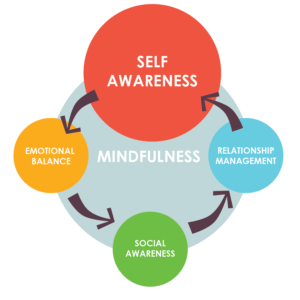Share Dr. Arias Shah:
Check In!

Successful companies across industries typically have projections, forecasts, budgets, etc., to assure they are on track with meeting their goals. In fact, many meet quarterly to discuss where they are at and what needs to happen to meet their goals. These concepts transcend many areas in people's lives, whether intentional/consciously, or not/subconsciously.
People go to their primary doctor for annual checkups as a preventative measure to make sure everything is well, that they are still healthy, and it's an opportunity to address anything that might not be "well" before it gets worse. Similarly, with cars, there is a need to do checkups, oil changes, tune-ups, etc. To assure the car continues to run well, this essentially prolongs the car's life span.
With all this said, one can conclude it would be beneficial for people's mental, emotional and relational well-being to do check-ins to increase the probability of a healthier, prolonged life. Shouldn't one be proactive with their well-being and not be passive?
As a clinician, my work typically involves me sharing the value of being mindful and intentional with my clients. Whether I am working with an individual, couples, or families, at some point when appropriate, we discuss these concepts and how they may be applicable in their lives and what difference can that make. These concepts are simple and practical, yet, I dare to say most do not apply them.
To begin, I like to address the two-part process with what it means to be mindful. According to Psychology Today, mindfulness "is a state of active, open attention to the present. This state is described as observing one's thoughts and feelings without judging them as good or bad." In line with this definition, the simple act to be mindful is to be present and self-aware of what's happening internally and externally; to slow down, assess and analyze. This process is not intended to evoke hypervigilance, overthinking, over stress, or being critical. Instead, the idea is to observe oneself, life, emotions, and relationships with kindness, patience, grace, and without judgment. We screen and take it all in and then exhale it like a purifier or detoxifier.
The mindfulness process can take many forms. In therapy, I collaborate with my clients to take inventory and see what is happening in the client's life to help them tune in. We explore where do they invest their time and energy. I have them picture a pie chart with pieces that reflect a part of their life (people, things, ideas, work/career, health, family, church/temple, etc.). Then they would determine approximately what percent of time/dedication they give to each to decide whether they need to remove some, shift priorities (time spent), or add any. In this process, the idea is to become aware of how they spend their time and energy to take control of how they want to spend their time moving forward, determining the best use of their time accordingly. Most people don't take the time to reflect on their life until new year's eve to create their new year's resolutions. Why wait to identify goals which are forgotten within a month. Instead, people should regularly check in to assure they are on track with their individual, family, and or relational goals to increase their probability of success, hence the intentionality part.
From this concept of identifying and modifying the pieces in one's life chart, I have clients visualize buckets that derive from the pieces. The idea here is for the clients to now explore and identify at minimum one to two steps, also considered as deposits or investments, to contribute to those buckets. The investments in the buckets don't have to be daily. Investing in each bucket may not be feasible daily; therefore, one has to determine when to invest in each. For instance, some can be daily, others bi-monthly, quarterly or yearly. Some can be fixed, like auto deposits or traditions, such as going on a trip every year. Regardless, taking the initiative to be proactive in your investments in the different areas of your life should provide a sense of satisfaction/accomplishment/fulfillment.
I know many people struggle with planning, structure, and discipline. Some may not be turned on by the idea of "checking in," as it may feel tedious, work, and un-organic. What's different, foreign, unfamiliar, and in this case associated more so perhaps with a business world concept may not be appealing. However, why not invest in yourself and be consistent; if not you, who? It's easy to be all these things for an employer, but not for you? This process is your own; there is no exact way, but in general, the idea is to start and figure out how to be consistent with increasing the probability of success. Start small, see the benefits and build from there.
Invest in yourself - Life is too short!
Don't let life just happen - Be an active agent in your life, the author of your story!
Take charge - Don't neglect yourself - invest in yourself! - Live a fulfilled life - Don't wait!
Share Dr. Arias Shah: